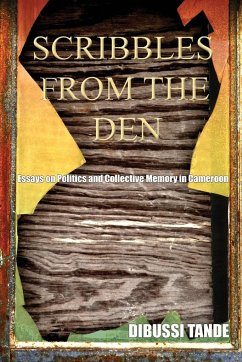
Genocide, Collective Violence, and Popular Memory
The Politics of Remembrance in the Twentieth Century
Versandkostenfrei!
Versandfertig in 1-2 Wochen
141,99 €
inkl. MwSt.
Weitere Ausgaben:

PAYBACK Punkte
71 °P sammeln!
The twentieth century has been scarred by political violence and genocide, reaching its extreme in the Holocaust. Yet, at the same time, the century has been marked by a growing commitment to human rights. This volume highlights the importance of history-of socially processed memory-in resolving the wounds left by massive state-sponsored political violence and in preventing future episodes of violence. In Genocide, Collective Violence, and Popular Memory: The Politics of Remembrance in the Twentieth Century, the editors present and discuss the many different social responses to the challenge o...
The twentieth century has been scarred by political violence and genocide, reaching its extreme in the Holocaust. Yet, at the same time, the century has been marked by a growing commitment to human rights. This volume highlights the importance of history-of socially processed memory-in resolving the wounds left by massive state-sponsored political violence and in preventing future episodes of violence. In Genocide, Collective Violence, and Popular Memory: The Politics of Remembrance in the Twentieth Century, the editors present and discuss the many different social responses to the challenge of coming to terms with past reigns of terror and collective violence. Designed for undergraduate courses in political violence and revolution, this volume treats a wide variety of incidents of collective violence-from decades-long genocide to short-lived massacres. The selection of essays provides a broad range of thought-provoking case studies from Latin America, Africa, Europe, and Asia. This provocative collection of readings from around the world will spur debate and discussion of this timely and important topic in the classroom and beyond.














